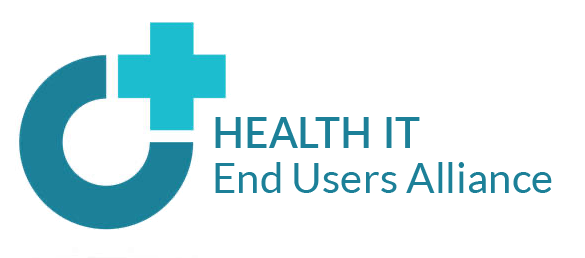
11 May Health IT End-Users Alliance Members Unite Around Data Collection and Use to Support Health Equity
The Health IT End-Users Alliance (the Alliance), a group focused on ensuring that policy and standards development activities reflect the complex clinical and operational realities facing healthcare technology users, released its second consensus statement regarding the collection and use of data to support equity. The statement calls for additional efforts to standardize and increase the uniform collection and reporting of relevant social drivers of health data, increased training in how to collect this data, better use of appropriate tools and processes to collect and share social drivers of health, and ongoing research to support these efforts.
In the consensus statement, the Alliance notes that as the healthcare system works collaboratively to ensure that we have the right data to guide and evaluate programs and efforts, we must retain, as the primary goal, equity in clinical care and health outcomes that reach far beyond data collection.
“If end users are to be successful at improving health equity through the collection, sharing, and use of social drivers of health data, we need to better understand the connection between policy and technology,” said American Health Information Management Association Chief Public Policy and Impact Officer Lauren Riplinger. “To succeed in improving health equity, we must focus on data collection and translation in the context of policy and standard development for improved patient engagement, better care, and more equitable outcomes.”
The consensus statement offers 11 principles to guide the public and private sectors in data collection and use to achieve health equity goals. As policymakers and private stakeholders continue collaborating to advance a health equity roadmap, the Alliance urges them to strike the right balance between practical requirements for data collection and using that data to promote improved health outcomes.
“OCHIN is proud to join our Alliance partners in demonstrating the collective commitment of our organizations to advancing health equity,” said Jennifer Stoll, executive vice president of external affairs at OCHIN. “This consensus statement underscores the critical need to support whole patient health and well-being through integrated social risk screening and support, national data standards, and quality measures that lead to more sustainable healthcare.”
“The Medical Group Management Association (MGMA) looks forward to working alongside our alliance partners and policymakers to promote standards to provide consistency and efficiency for data collection and interpretation by medical group practices as we address the important issue of health equity,” said Anders Gilberg, senior vice president of government affairs at MGMA. “These commonsense principles, when leveraged appropriately, should provide a foundation to reduce disparities in our healthcare system and provide better patient outcomes.”
